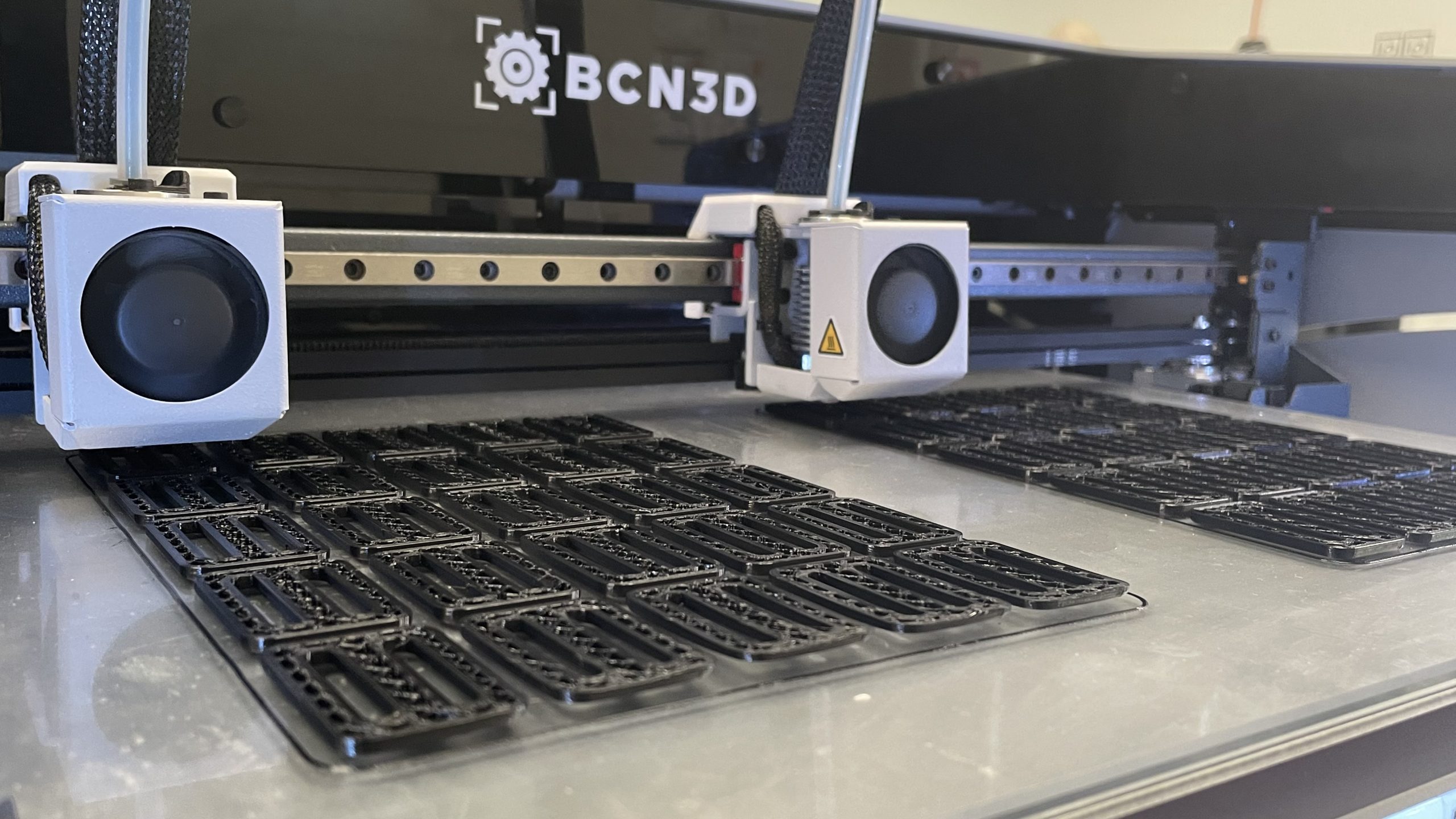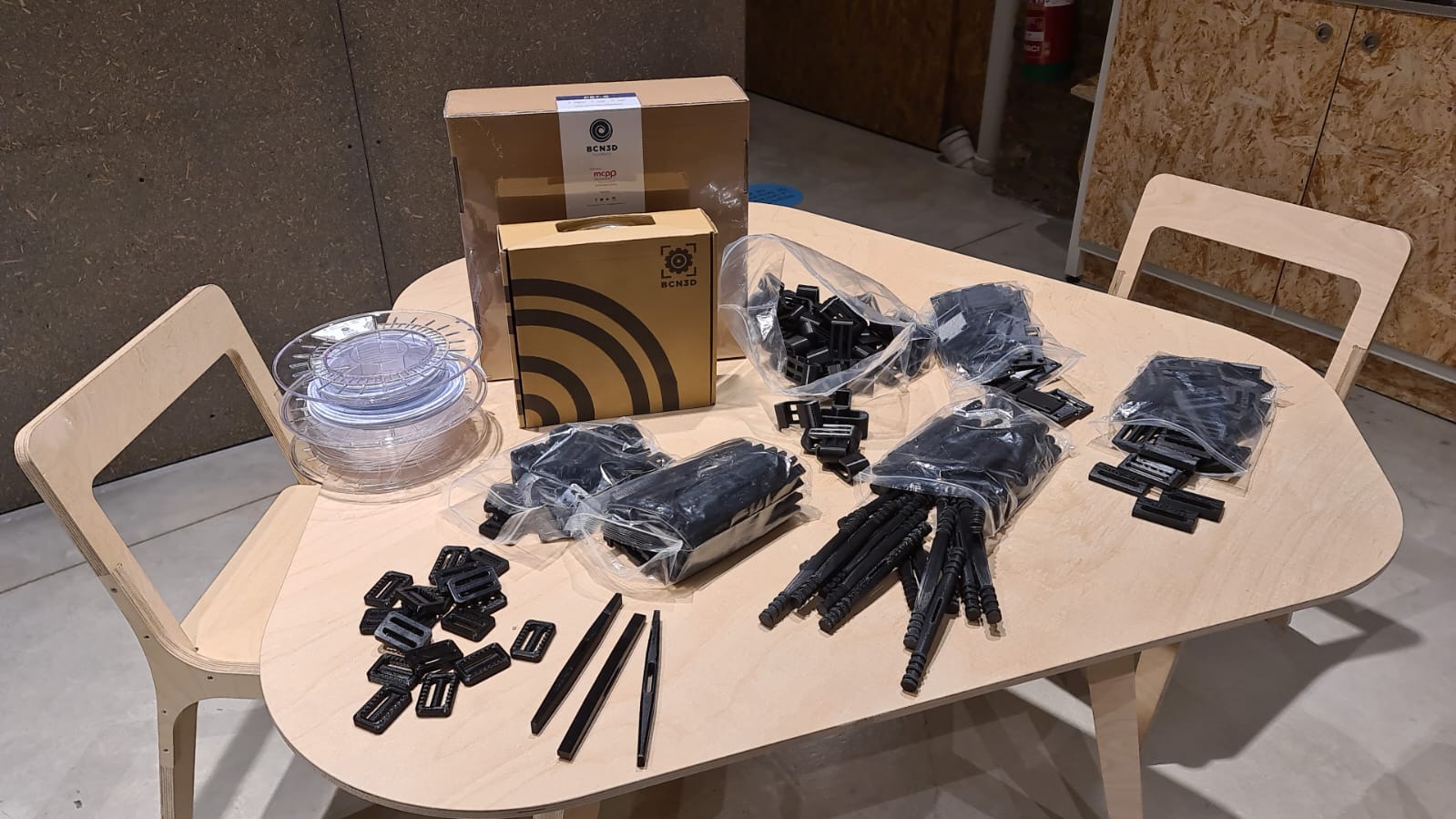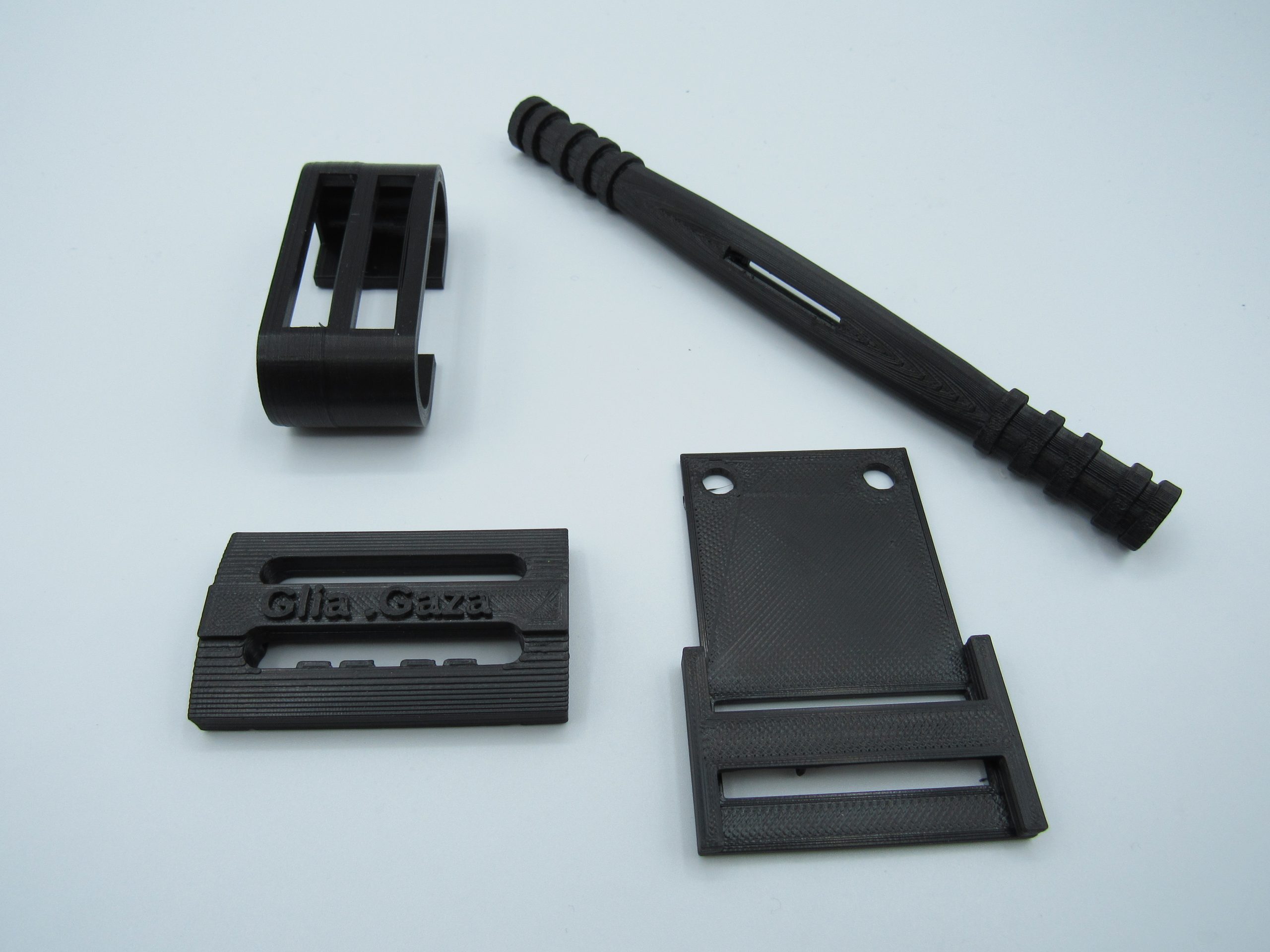Barcelona-based 3D printer manufacturer BCN3D has produced 300 3D printed parts to create tourniquets to aid the humanitarian relief effort in Ukraine.
The tourniquets will be delivered to two hospitals in the cities of Kryvyi Rih and Dnipro to help civilians and soldiers that have been wounded as a result of the ongoing Russian military invasion of the country.

3D printing tourniquets
BCN3D’s project arose from an urgent request from the Ukrainian authorities for tourniquets that could be produced quickly in order to bolster existing medical equipment supplies in the country.
The authorities asked for 3D printed tourniquets due to the technology’s ability to rapidly produce tourniquet parts in the desired material. Four parts that make up a tourniquet can be printed in just 48 hours using a BCN3D Epsilon series W50 3D printer, with the firm printing a total of 300 pieces.
The 3D printed parts will be delivered as a free donation by BCN3D and will be included in a humanitarian aid convoy leaving Barcelona in the coming days. The project is part of a wider initiative supported by the Ukrainian Consulate in Barcelona and around 20 organizations supported by Barcelona City Council.
The 3D printed tourniquet parts will be sent to two hospitals in Kryvyi Rih and Dnipro to help wounded civilians and military personnel injured as a result of the conflict.

How the 3D printing community is supporting Ukraine
Manufacturing on Demand
The Western world has continued to ramp up pressure on Russia since it began its full-scale invasion of Ukraine on the 24th February 2022, slapping sanctions on the country in an attempt to cripple its economy. The West has also supported Ukraine with military equipment and humanitarian aid, with a number of 3D printing companies becoming involved in such projects.
For instance, 3YOURMIND, Sygnis and TeenCrunch have launched the ‘Tech Against Tanks’ initiative to aid the production and distribution of 3D printed medical, tactical, and protective equipment from 3D printing hubs across Germany, Poland, and Ukraine to those in need.
Elsewhere, open-source medical device developer Glia has issued an appeal to get its wound-binding tourniquets into Ukraine to help with the country’s humanitarian crisis, and has also made the design files freely available for medics on the ground to download via GitHub.
Meanwhile, many in the 3D printing industry have come together to show support for the EU and NATO’s security and foreign policy course in regards to the conflict, while the likes of EOS, 3D Systems, HP, and Zortrax have announced their refusal to do business with Russian firms.

* This article is reprinted from 3D Printing Industry. If you are involved in infringement, please contact us to delete it.
Author: Hayley Everett

Leave A Comment